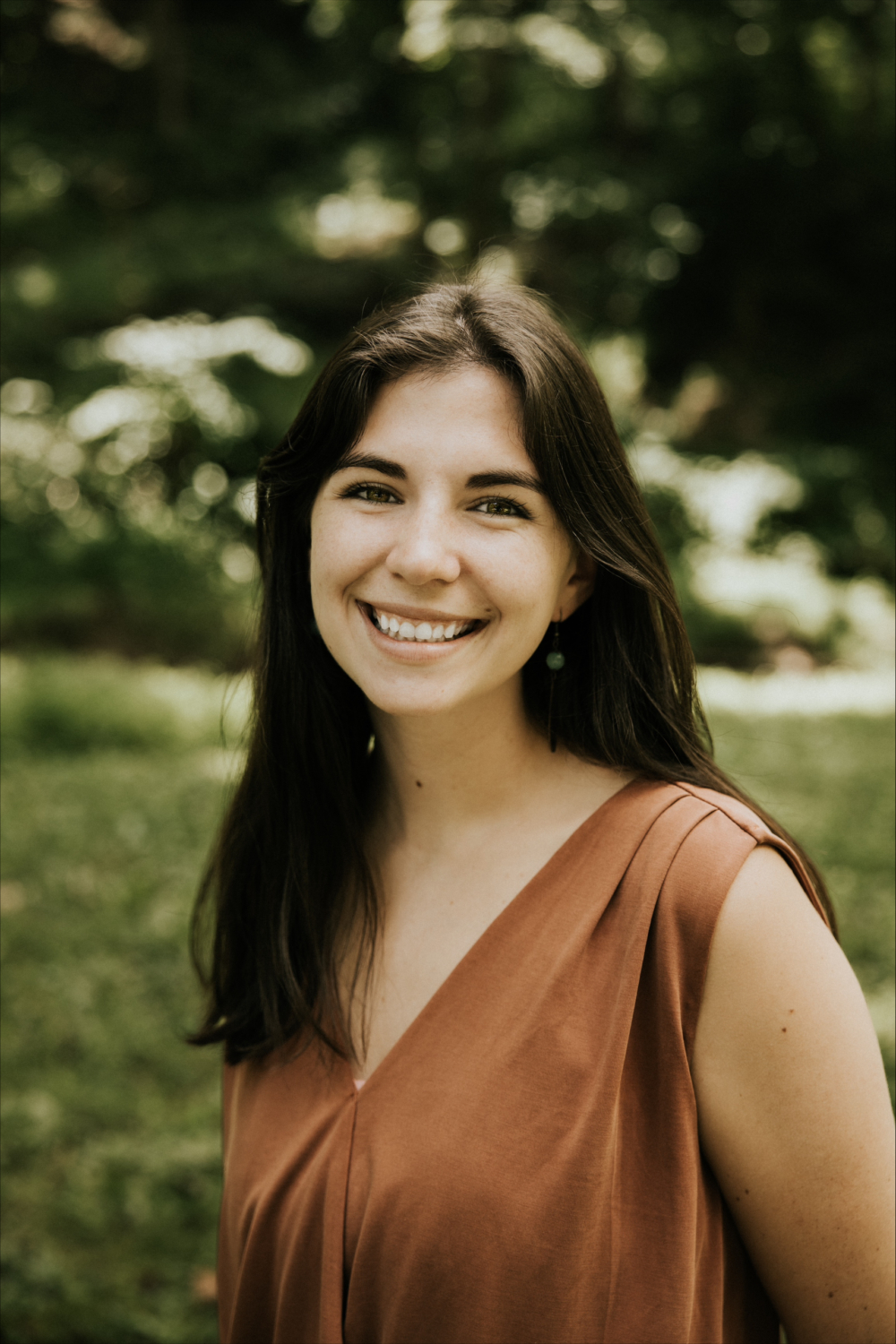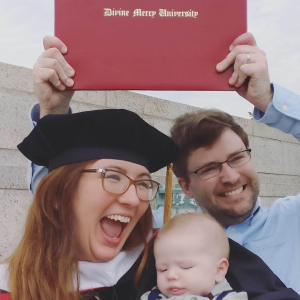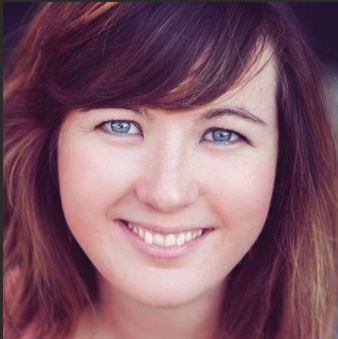Meet Maggie Hernon, MA, LPC
Tell us about yourself.
I grew up in Steubenville, Ohio in a large Catholic family. I love my hometown and growing up in a Catholic community was very formative to who I am today. My big family is only getting bigger, and I now have five nieces and three nephews. I have always had a love for learning and for people, and it didn’t take long for me to decide where I wanted to go to college or what I wanted to study. I attended Franciscan University and earned my bachelors degree in both psychology and philosophy. Throughout college, I worked a variety of jobs including as a piano teacher, a personal assistant, a bookstore clerk, a babysitter, a house cleaner, an evangelization assistant, a contract manager, and a few others I have since forgotten. Among the jobs I have worked, my favorite by far was my work with children with autism and behavioral disorders. I spent two years training and providing behavioral therapy to children of various ages. I found great fulfillment in seeing positive change in those I worked with and, I grew my love for the field of psychotherapy. I completed my masters in Clinical Mental Health Counseling at Franciscan University and fulfilled my clinical training requirements through a community mental health practice. There, I found my true love for counseling and deepened my appreciation for the complexity and resilience of the human person.
What inspired you to become a Therapist?
Through what I am sure is grace, I have been certain that I wanted to be a counselor from an early age, and this certainty has never wavered. Around eighth grade, I decided that I wanted to pursue a career in mental health. I often found myself in situations where others would turn to me for advice or support, and this role felt very natural to me. However, I knew that I lacked the skills to help people the way I wanted to. I was determined to learn more so that I could better serve the need that I saw all around me for compassionate, dedicated, and skillful listeners. I was motivated both by a desire to help others and a passion for knowledge. This pushed me to continue my education and to pursue my masters in counseling and ultimately brought me here to Ruah Woods.

How does your faith as a Catholic influence you as a Therapist?
It is clear to me that my career as a counselor is part of my path to heaven. I believe that I am learning a particular way to imitate Christ through this work. Because of this, I take my work very seriously and aim to improve my ability to serve others at every opportunity provided for me. My Catholic faith informs me and grounds my perspective of the human person, suffering, and healing. Perhaps most importantly, my faith supplies something that I think is vital in this line of work—persistent and enduring hope.
How do you describe your approach to therapy?
My approach is grounded in my belief that relationships and conversations are the greatest vessels of healing. Because of this, developing and deepening relationships with my patients is my first priority. Through this relationship, I aim to provide a sense of safety for patients to explore what they need to achieve wellness. I assist clients in forming goals and making small steps that lead to positive and lasting change. I seek to help clients understand themselves and others better through a proper integration of their thoughts, emotions, and behaviors. In order to do this, I draw from approaches such as Cognitive Behavioral Therapy, Motivational Interviewing, mindfulness techniques, and Solution Focused Therapy. When working with parents and children, my goal is always to improve the parent-child relationship – the most important relationship in the life of a child. I draw from the techniques of Parent Child Interaction Therapy, play therapy and Behavior Therapy to better promote the child’s development.
What types of patients and difficulties do you work with?
I will work with a variety of patients, but I primarily see individuals (adolescents and adults) for counseling for issues related to depression, anxiety, bipolar disorders, adjustment issues, and trauma related issues. I also frequently work with parents and young children on various issues such as behavioral issues, emotional regulation, and other concerns.
What do you like to do for fun?
I enjoy hiking and going for walks. Because I just recently moved to Cincinnati, I am looking forward to finding new places to explore! I also love to cook and bake, and I am a classically trained pianist and absolutely love music.

To learn more or to make an appointment with Maggie, please call 513-407-8878.






